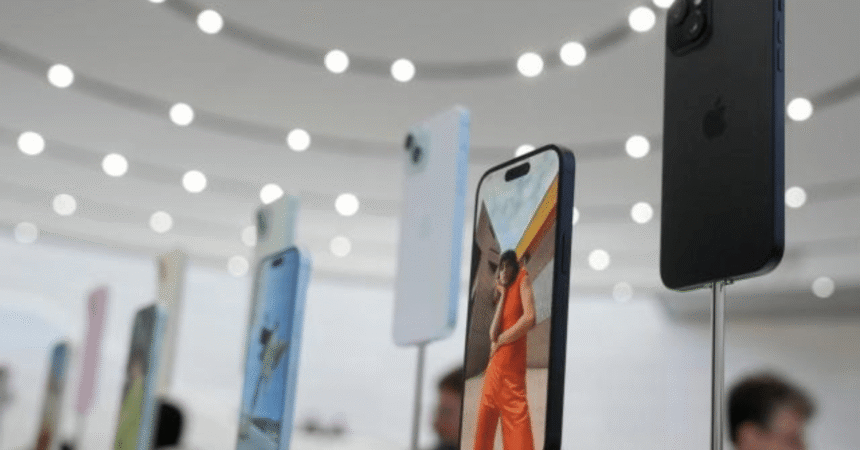A federal judge has recently narrowed a lawsuit against Apple, focusing on allegations that the tech giant violated the privacy rights of iPhone, iPad, and Apple Watch users through data collection practices associated with its proprietary apps. U.S. District Judge Edward Davila, based in San Jose, California, issued a ruling that dismissed most claims concerning the “Allow Apps to Request to Track” setting but allowed several claims regarding the “Share [Device] Analytics” setting to proceed. This case represents a significant moment in the ongoing dialogue around user privacy, data collection, and corporate responsibility in the tech industry.
Background of the Lawsuit
The lawsuit was initiated by a group of mobile device users who allege that Apple misled them regarding its data collection practices. The plaintiffs argue that Apple assured users that disabling specific privacy settings would limit the collection, storage, and use of their personal data. However, they claim that Apple continued to collect and use data without their consent, violating user agreements and various privacy and consumer protection laws.
The core of the plaintiffs’ argument lies in the belief that Apple provided inadequate transparency about how it collects data through its apps, despite the assurances given to users. This lawsuit is part of a broader trend, as tech companies, including Apple, Google, and Facebook, face increasing scrutiny over their data practices. Users are becoming more aware of how their information is collected and utilized, raising concerns about consent and privacy rights.
The Specifics of the Privacy Settings
Judge Davila’s ruling emphasized the distinction between two critical settings on Apple devices: the “Allow Apps to Request to Track” setting and the “Share [Device] Analytics” setting. The former allows users to control whether third-party apps can track their activity across other apps and websites. Apple has made it clear that this setting applies specifically to third-party applications, which means that turning it off does not impact data collection through Apple’s own apps.
In his decision, Judge Davila noted that it would be “implausible” for a reasonable person to believe that disabling this setting would withdraw consent for Apple to collect data through its own applications. This interpretation effectively shields Apple from liability regarding the claims associated with the “Allow Apps to Request to Track” setting.
Conversely, the judge recognized that users may have a valid claim regarding the “Share [Device] Analytics” setting. This setting allows users to control whether their device analytics data—such as how the device is used and how applications perform—is shared with Apple. The plaintiffs argued that Apple’s disclosure indicated that users could disable this sharing altogether, suggesting that turning off this setting would mean users do not consent to the collection of their analytics data.
Implications of the Ruling
The implications of this ruling extend beyond the immediate case. By allowing claims related to the “Share [Device] Analytics” setting to proceed, the court acknowledges the potential for users to assert that they have a reasonable expectation of privacy concerning the data shared under this setting. This development may pave the way for further legal scrutiny of how companies like Apple communicate their data practices to users and how they implement privacy controls.
This lawsuit is part of a growing landscape where consumers are increasingly challenging tech giants over data privacy issues. In recent years, numerous lawsuits have targeted technology companies for alleged breaches of user privacy, focusing on practices that may not adequately protect consumer data. This trend highlights the urgent need for clear and transparent communication from tech companies regarding their data collection practices.
Apple’s Defense and Data Collection Practices
Apple has defended its data collection practices, asserting that the information gathered through the “Share [Device] Analytics” setting is used to improve its products and services. The company has long marketed itself as a leader in user privacy, touting its commitment to transparency and user control over data. Apple argues that it provides users with ample information regarding its data practices and that users have the ultimate choice over what data is shared.
In response to the lawsuit, Apple contends that its practices are consistent with user expectations and industry standards. The company maintains that it strives to create a transparent environment in which users can easily understand their data options. However, the lawsuit challenges the effectiveness of these assurances, suggesting that many users may still feel misled or uninformed about how their data is being used.
The Broader Context of User Privacy
The ongoing litigation against Apple is reflective of a broader societal conversation surrounding data privacy and user consent in the digital age. As more individuals rely on technology in their daily lives, the amount of personal data being collected and processed continues to grow exponentially. This reality raises important questions about how much control users have over their data and whether they can trust companies to handle that data responsibly.
The general public is increasingly aware of data privacy issues, driven in part by high-profile data breaches and scandals involving major tech companies. As a result, consumers are demanding greater transparency and accountability from companies regarding their data practices. This shift in sentiment is prompting regulatory bodies around the world to consider more stringent privacy laws, which could have far-reaching implications for how companies operate.
Potential Consequences for Tech Companies
The outcome of this lawsuit could have broader implications for the tech industry, especially as more users push back against perceived invasions of privacy. Companies may need to reassess their data collection practices and consider how they communicate with users about those practices. Failure to adequately inform users about data collection methods could lead to further legal challenges and regulatory scrutiny.
Moreover, this ruling serves as a reminder of the legal responsibilities that tech companies have in ensuring user consent and compliance with privacy laws. As courts begin to take a closer look at data practices, companies may find themselves needing to reevaluate their privacy policies and data collection methods. A ruling that favors the plaintiffs could embolden other users to come forward with similar claims, leading to a potential wave of lawsuits against not just Apple, but also other tech giants.
User Expectations and Corporate Responsibility
The evolving landscape of data privacy raises critical questions about the expectations users have for corporate responsibility. Consumers increasingly expect companies to act in their best interests, prioritizing transparency and ethical data practices. As technology continues to advance and become more integrated into everyday life, the relationship between users and tech companies will be tested.
The balance of power between users and corporations is shifting, with users becoming more informed and vocal about their rights. This change is prompting companies to take a more proactive approach in addressing privacy concerns, leading to innovations in data management and user control mechanisms.
Future Implications for Apple
As the case continues to unfold, the implications for Apple are significant. The company may need to adapt its policies and practices to align with the legal expectations emerging from this lawsuit. The court’s decision could serve as a precedent for future cases, compelling Apple to be more transparent about its data collection practices.
Additionally, Apple could face reputational damage if the lawsuit results in a public perception that it is not living up to its promises of user privacy. A significant portion of Apple’s brand identity is tied to its commitment to privacy, and any tarnishing of this reputation could have adverse effects on consumer trust and loyalty.
The Role of Regulation in Data Privacy
As the tech landscape evolves, regulatory bodies are also beginning to take a more active role in overseeing data privacy practices. Governments worldwide are enacting stricter regulations to protect consumer rights and ensure that companies adhere to best practices in data handling. The General Data Protection Regulation (GDPR) in Europe is one prominent example, providing a framework for how companies must manage personal data and obtain user consent.
In the United States, regulatory efforts are also gaining momentum, with various states introducing their own data privacy laws. These regulatory frameworks aim to provide consumers with greater control over their data and hold companies accountable for their practices. As these regulations continue to evolve, tech companies will need to remain agile and responsive to ensure compliance.
The Path Forward
The path forward for Apple and the tech industry as a whole is fraught with challenges and opportunities. As the public demands greater accountability and transparency regarding data practices, companies will need to navigate the complex landscape of user expectations, regulatory requirements, and legal risks.
For Apple, the outcome of this lawsuit could serve as a catalyst for change, prompting a reevaluation of its data practices and privacy policies. The company has an opportunity to reinforce its commitment to user privacy by addressing the concerns raised in this litigation and implementing more robust measures to protect user data.
In summary, the narrowing of the privacy lawsuit against Apple highlights critical issues surrounding user consent, data collection practices, and corporate accountability. As consumers become more aware of their rights and demand greater transparency from tech companies, the landscape of data privacy will continue to evolve. The implications of this case extend beyond Apple, potentially influencing how technology companies approach data management and user privacy moving forward.
The ongoing conversation about privacy rights, user consent, and corporate responsibility is essential in shaping the future of technology and ensuring that users’ interests are prioritized. As this legal battle unfolds, it serves as a reminder of the need for a balanced approach to data privacy, where both user rights and corporate innovation can coexist.
#Apple #PrivacyLawsuit #DataProtection #UserConsent #TechNews #DataPrivacy #LegalUpdate #ConsumerRights







